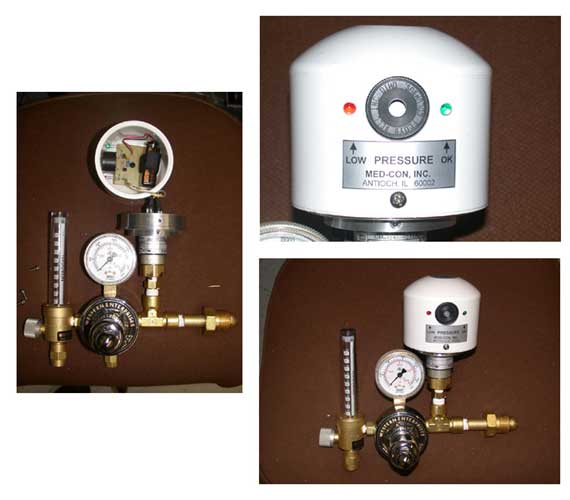Joseph Stetter is the president of KWJ Engineering, a California corporation dedicated to specialized gas detection applications in the safety and health field.
KWJ Engineering is fundamentally an instrument company. We make sensors and instruments focused on gas detection in the safety, health, energy, and ozone sterilization markets.
I joined KWJ Engineering after I sold my first start up Transducer Research Inc, a company that was making gas sensors and detectors. I merged my second startup, TTI, with Ken Johnson’s (chairman and co-founder of KWJ Engineering) and we started making nano-sensors for health, safety, consumer, and process control applications. By joining the forces of our two companies, i.e. TTI’s sensors and KWJ’s engineering, it allowed us to create some very innovative products.
What gets me up in the morning is really the innovation in technology when it has some connection to society. I’ve done University research and product development in the past but it’s the innovation process, the new idea and getting it into someone’s hand that wakes me up. First project I did after graduate school in 1977, was a hydrazine detector for NASA’s Space Shuttle. Hydrazine is a toxic rocket propellant that is ejected prior to re-entry into earth orbit because they do not want to reenter with a lot of explosives and fuels aboard the spacecraft. When it lands and prior to launch, these areas of the spacecraft are monitored for leaks of the toxic propellant and we made the detectors. To see these being used, protecting safety, holding up a launch until a leak is repaired, was most thrilling. And it was most satisfying to see the practical use of the technology that you have integrated into an application. To have something useful in society doing good for people, this is what I found makes me most passionate about my science.
I taught a course in Stewart School of Business while I was at IIT. In that course, I discussed two different aspects of entrepreneurship. One aspect was invention, which is about building a better mousetrap or a better way of doing something. But innovation is actually doing something with that technology that impacts society. Innovation uses invention sometimes and involves inventions, but to me it’s much more connected with our social system, with societal utility, and with a working business model. It’s important to know that distinction. Innovation also doesn’t have to be just technology. It can be a service like FedEx. The rush I get out of actually seeing my products protect public health and safety, keeps me coming to work early and staying late.
I think the main role of government should be to protect innovation and the innovators by creating a level playing field. Way too often today, there’s a lot of money involved and large corporate interests get imposed on the innovator. The power of our society should be with the individuals, they are the true job creators, individuals are the entrepreneurs and innovators that come up with a new and better way to do something. Sometimes they even create markets and new technology to serve them. That’s why government should protect innovators by leveling the playing field and empowering the individual not the corporation. The supreme court ruling that relates to making a business equal to an individual is the wrong direction and in my view, and plays against what is required to promote entrepreneurship.
Entrepreneurs and innovators need to be in control to make the innovation process possible. I am not saying universities are not a part of the innovation process or other institutions do not help, but the government needs to empower the individual entrepreneurs as the leaders if the USA wants to see it innovation increase. Government’s role is not only to level the playing field by providing access to funds, services, and other innovator needs but also to be an auditor to see that any funding is spent wisely. The recent new SBIR authorization includes the ability for VCs to access the SBIR funds. This is not encouraging innovation, since VCs do not innovate, but rather VCs hire innovators and fund innovative ideas. The SBIR funds should not be diverted to VCs, but rather VCs should continue to add money to the innovation funds. Access to VCs, universities, technology, and societal infrastructure in general is already available to the innovators. The government needs to encourage and protect the individuals and keep funding entrepreneurs to keep innovation strong in the USA.






